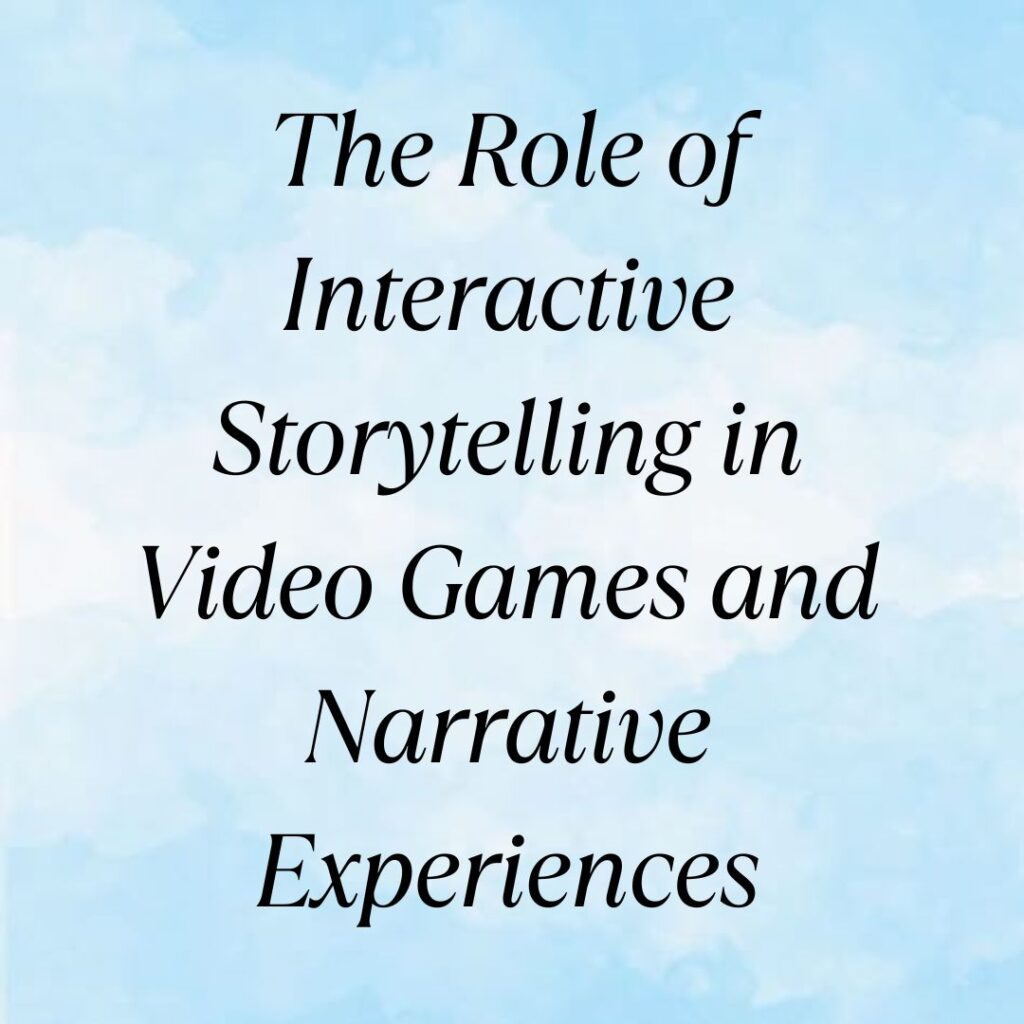In the realm of entertainment, few mediums have evolved as dramatically and innovatively as video games. What began as simple pixelated adventures on arcade screens has transformed into sprawling virtual worlds where players can shape narratives and influence outcomes through their choices. This evolution is largely due to the advancement of interactive storytelling—a powerful blend of traditional narrative techniques and player agency that has redefined how stories are told and experienced.
The Evolution of Interactive Storytelling
Interactive storytelling in video games goes beyond mere plotlines; it immerses players in dynamic, responsive worlds where their decisions matter. This approach has roots in early text-based adventures like “Zork” and “Colossal Cave Adventure,” where players typed commands to interact with a story unfolding before them. These games laid the groundwork for what would become a cornerstone of modern gaming—player choice.
As technology progressed, so too did the complexity and depth of interactive storytelling. Games like “The Elder Scrolls” series by Bethesda Softworks and “Mass Effect” by BioWare introduced expansive, branching narratives where player decisions influenced not only immediate outcomes but also long-term consequences. For instance, in “Mass Effect,” choices made throughout the trilogy can drastically alter the storyline and even determine the fate of entire civilizations, illustrating the impact of player agency on narrative direction.
The Power of Player Agency
Player agency—the ability of players to make meaningful choices that shape the story—lies at the heart of interactive storytelling. This concept has become increasingly sophisticated with games like “The Witcher 3: Wild Hunt” by CD Projekt Red, where decisions made in seemingly trivial side quests can ripple through the entire game world, affecting relationships, alliances, and even the ending of the game. Such depth encourages players to engage deeply with the narrative, fostering a sense of ownership over the story’s direction and outcome.
Moreover, advancements in artificial intelligence and procedural generation have further enhanced interactive storytelling by creating more responsive and adaptive game worlds. Games like “Red Dead Redemption 2” by Rockstar Games utilize AI to simulate dynamic ecosystems where characters remember past interactions with the player and respond accordingly, creating a sense of continuity and immersion rarely seen before.
Engaging Narratives Across Genres
Interactive storytelling isn’t limited to a single genre; it spans across a diverse range of game types, each offering unique narrative experiences. In the realm of role-playing games (RPGs), titles like “Final Fantasy VII Remake” by Square Enix blend cinematic storytelling with player-driven exploration and decision-making, delivering a narrative experience that rivals blockbuster films in emotional depth and scope.
On the other hand, narrative-driven adventure games such as “Life is Strange” by Dontnod Entertainment emphasize choice and consequence, presenting players with morally complex dilemmas and exploring themes of friendship, identity, and sacrifice. These games often feature branching narratives and multiple endings, encouraging players to replay and explore different paths to uncover the full breadth of the story.
Impact on Culture and Society
The influence of interactive storytelling extends beyond entertainment—it shapes cultural discourse and societal attitudes. Games like “The Last of Us” series by Naughty Dog confront players with profound moral questions and explore themes of survival, loss, and humanity in a post-apocalyptic world. By immersing players in emotionally charged narratives and challenging ethical dilemmas, these games provoke introspection and empathy, fostering meaningful discussions about complex issues.
Furthermore, interactive storytelling has found applications beyond traditional gaming. Virtual reality (VR) experiences like “Half-Life: Alyx” by Valve Corporation immerse players in fully realized virtual worlds where they can interact with characters and environments in unprecedented ways. This evolution in technology not only enhances immersion but also opens new possibilities for storytelling in fields such as education, training, and therapy.
Future Directions and Innovations
Looking ahead, the future of interactive storytelling promises even greater innovations and possibilities. Emerging technologies such as augmented reality (AR) and cloud gaming are poised to redefine how narratives are delivered and experienced. Games like “Pokémon GO” by Niantic demonstrate the potential of AR to blend fictional narratives with real-world environments, creating interactive experiences that blur the lines between digital and physical realms.
Furthermore, advancements in narrative design and procedural generation algorithms are enabling developers to create more personalized and dynamic storytelling experiences. Games like “Cyberpunk 2077” by CD Projekt Red aim to deliver sprawling, emergent narratives where player choices and interactions with non-playable characters (NPCs) shape the world and its inhabitants, offering limitless possibilities for player-driven storytelling.
Conclusion
In conclusion, interactive storytelling in video games represents a pivotal evolution in how stories are told, experienced, and appreciated. By empowering players with agency and meaningful choices, these games transcend traditional narrative forms, inviting audiences to become active participants in dynamic virtual worlds. As technology continues to advance and creative boundaries expand, the future of interactive storytelling holds endless potential to inspire, challenge, and entertain in ways that resonate deeply with audiences worldwide. Whether exploring distant galaxies, navigating post-apocalyptic landscapes, or unraveling mysteries in fantasy realms, interactive storytelling continues to shape the landscape of modern entertainment, offering a compelling testament to the power of narratives in shaping our collective imagination and understanding of the world.
So, the next time you pick up a controller or don a VR headset, remember that you’re not just playing a game—you’re stepping into a world where your choices matter and your actions shape the story. Embrace the adventure, and let the power of interactive storytelling guide you through realms limited only by imagination and innovation.






